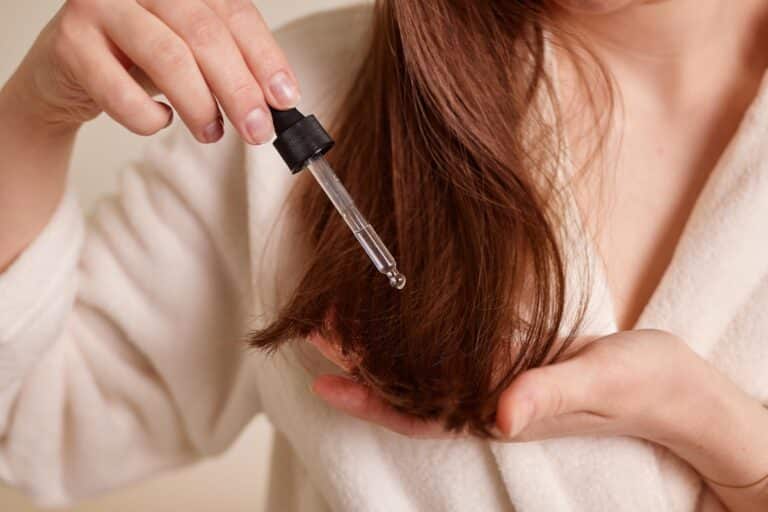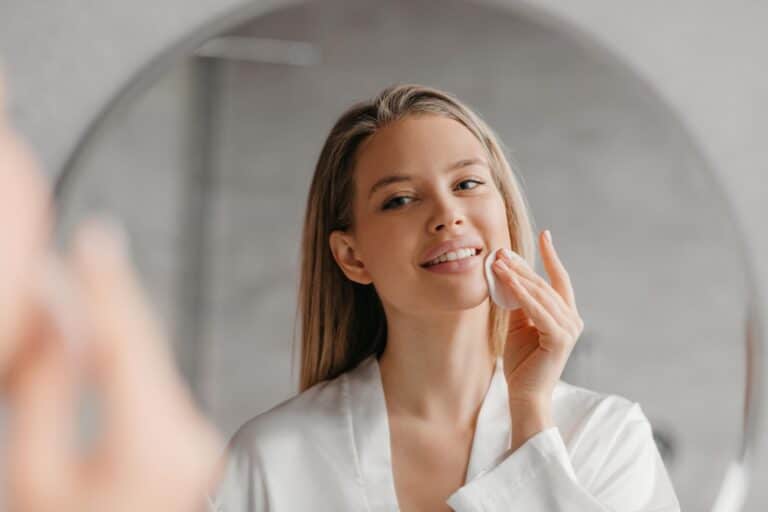Spending time at the pool, in the sun, and at the beach are some of the best summer activities — but they can also have a big impact on your skin. Now, as August gets underway, it’s a good time to start thinking about how to care for your skin after a summer of fun. To help, we turned to Amanda Pucci, Clinical Director/Aesthetic Nurse Practitioner at Greenwich Med Spa and Kim Nichols, MD of NicholsMD, for their expert advice.

What to watch for at the end of the summer
“I find that most often, people struggle with congested skin and clogged pores (and therefore, breakouts) towards the end of the summer — a natural buildup of sunscreen application, spray tan products or self-tanner, and oils overall,” explains Dr. Nichols.
Also at play? Hyperpigmentation, which Pucci says is one of the more challenging issues when it comes to sun exposure. And, as Dr. Nichols points out, this time in the season is when people typically become more aware of any sun damage or discoloration.
What you can do to help
Whether it’s dealing with discoloration or simply keeping your skin healthy and hydrated, there are a few things you can do now — including, most importantly, using sunscreen. Beyond that, consider:
Including Vitamin C in your skincare routine.
“A great tip I share with my patients is adding in Vitamin C at a 15-20 percent concentration, which will increase photoprotection from UV damaging rays by 8 times,” says Pucci, “Once a day application in the morning is all you need.” Daily vitamin C use, along a pigment corrector — which works to prevent sun spots — and sunscreen can also help you stay ahead of any potential pigmentation issues, she says.
Using moisturizer.
People often assume you don’t need moisturizer during the summer — but the opposite is true, says Dr. Nichols. “Switching to a lighter moisturizer or hydrating serum helps to retain hydration and promote cell turnover,” she explains. What you do want to skip though? Heavy makeup and skincare products. Avoiding those can help keep sweat-induced breakouts at bay, she says.
Trying IV infusions.
Dr. Nichols stresses the importance of hydrating from the inside out, noting that, “Vitamin IV treatments are not only excellent for restoring hydration, but also help to boost your skin health overall.”
Opting for this treatment.
Dr. Nichols recommends a treatment called SkinVive. “This injectable microdroplet treatment helps to enhance hydration, smooth skin’s texture, and provide a glass-like radiance,” she explains. Other options? “In general, I also find that now is the perfect time to get customized facials or hydra facials, as everyone can benefit from a deep cleanse,” she says.
Being extra cautious with laser treatments.
“Patients that are using lasers in the summer, such as intense pulsed light (IPL) or CO2 ablative lasers, should not be exposed to prolonged sun for at least two weeks after their treatment, as it could damage the skin more,” explains Pucci. “This doesn’t mean you can’t enjoy summertime activities. As long as a patient takes additional precautions, such as pigment corrector, sunscreen, and a hat, then a pool day with the kids is still an option.”
How to ease the fall skincare transition
While fall hasn’t arrived just yet, here are some tips to keep in mind during the transition:
Go for a facial. It’s common to have greasier skin in the summer and drier skin in the fall, explains Pucci. “Monthly customized facials are beneficial to keep up with your skin changes. Facials can be customized based on your skin’s condition at the present time creating a healthy glow and anti aging benefits.”
Try a heavier moisturizer. “The cooler, drier air can strip your skin of moisture, so switching to a richer moisturizer will help to prevent dryness and keep your skin hydrated,” says Dr. Nichols.
Use a gentle exfoliator. Adds Dr. Nichols, “especially for those who can’t make it into the office for a facial, I suggest incorporating a gentle exfoliating cleanser or serum to help remove dead skin cells that can accumulate from sun exposure and to promote cell turnover.” Speaking of serums, to combat discoloration, Dr. Nichols advises a daily serum that’s “formulated with ingredients such as niacinamide, azelaic acid, kojic acid, vitamin c, and tranexamic acid.”


